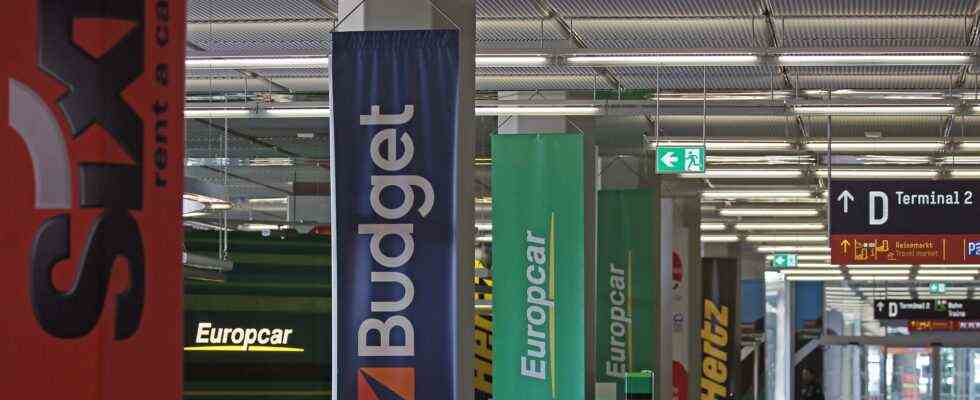Status: October 12, 2021 1:23 p.m.
Rental car prices are drastically more expensive than before the corona pandemic. The price increases hit vacationers particularly hard in some regions.
Anyone who takes a rental car on vacation now has to pay significantly more: a rental car can cost up to 78 percent more this year than before the corona pandemic. This was the result of an evaluation by the Check24 portal. Especially in popular holiday destinations such as Spain and Italy, the rise compared to the pre-crisis level is enormous. There vacationers have to pay up to 150 percent more for a rental car.
Even compared to 2020, the prices have risen significantly again, as an evaluation of the consumer portal Billiger-mietwagen.de shows. Rental cars in October cost around 40 percent more than last year. In Spain and Italy in particular, rental cars have become more than 80 percent more expensive.
Autumn holidays are not the number one price driver
In Germany, consumers also feel the plus: compared to last year, rental cars cost around 32 percent more. Although the premium is lower than in the Mediterranean countries, the difference to the previous year is clear. And in relation to the pre-crisis level, prices have increased by as much as 93 percent, as the Check24 evaluation shows.
The autumn holidays do not necessarily seem to be the price drivers: Check24 compared the current situation with the prices four weeks ago, i.e. outside the autumn holidays. Here the increase is only five percent on average, in some countries such as Italy there are even declines.
Chip shortages in the auto industry are becoming a problem
The price increase was already foreseeable, as the dealers have too few vehicles in their inventory: Most recently, dealers like Sixt warned that production bottlenecks in the auto industry would probably not be able to meet the high demand for rental cars. Jens Hilgerloh, President of the Federal Association of Car Rental Companies (BAV), estimated in September that the delivery bottlenecks mean that around 20 to 25 percent of the vehicles required by rental companies in Germany cannot be delivered and that around 75,000 vehicles are missing in the fleets.
As a result, the demand, which is slowly developing back towards the pre-crisis level, cannot be met, confirms Sixt boss Alexander Sixt: “Regardless of the current autumn holiday season, people’s mobility behavior is approaching the pre-crisis period again,” he says. “The high demand continues to meet a shortage of available rental cars.” Therefore, one currently sees “occasionally an increased price level for rental cars”.
Downsized fleets
In addition to the lack of chips, the Sixt boss mentions another reason for the shortage of supply: The rental car fleets had been reduced in the Corona crisis, which means that there are now a lack of cars. In some cases, stocks were reduced by up to two thirds during the crisis. Sixt is now trying to counteract this and rebuild the fleet. In the second quarter alone, 70,900 vehicles were purchased.

